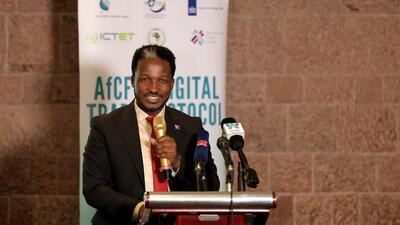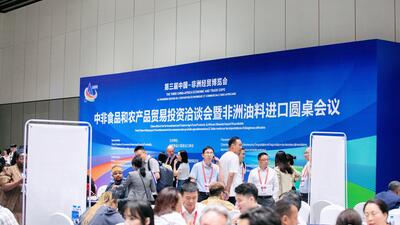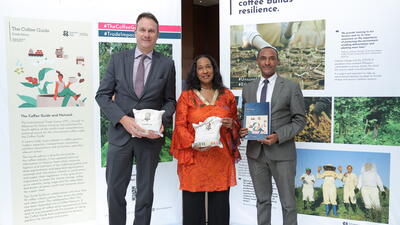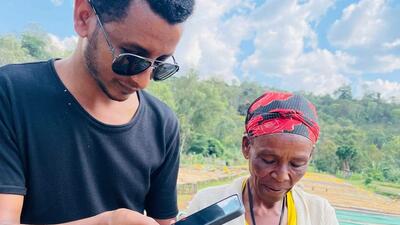
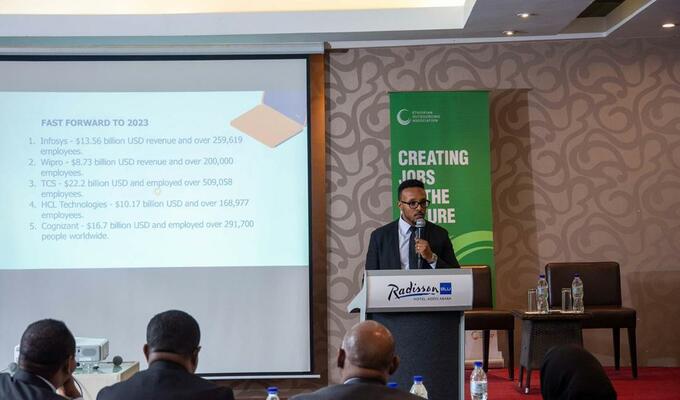
How tech companies are positioning Ethiopia for outsourcing boom
Tech companies have banded together to push for policy changes and to market the country as a top outsourcing destination, looking to replicate South Asia’s success in using digital skills to transform the economy.
More than 10 tech companies have joined together to form the Ethiopian Outsourcing Association, driven by the firm belief that their industry can create more and better jobs than any other part of the economy.
‘Every member is very passionate about this,’ said Wondwesen Zewdie, president of the new association. The company he co-founded, R & D Ethiopia, has more than 120 employees supporting companies located around the world. He believes that’s just the beginning, with outsourcing poised to bring major changes to the national economy.
‘We can see that it’s going to create an immense amount of jobs, and not just jobs but dignified jobs,’ he said. ‘Our employees get to know technology, they get to know how development works, they get more globalized.’
There are growing pains. Until the association was formed, Ethiopia didn’t have a single license for all outsourcing companies. Instead, they were registered by the specific type of work performed -- cybersecurity versus software development, for example.
One early result of the association’s outreach to government is the creation of a new license, the kind of administrative change that makes business development easier, said Tadios Tefera, chief technology officer of MMCY Tech.
‘The association gives us more power when it comes to influencing policy from government and other institutions. Our challenge was previously I would go to a certain ministry to say, for example, we’re having challenges with telecom. We always went to government to explain how we lose business, and when we lose business we have to lay off people,’ he said.
‘Each one of the association members had a similar experience. When we create an association, we have a more powerful voice and we are taken more seriously than if we speak individually.’
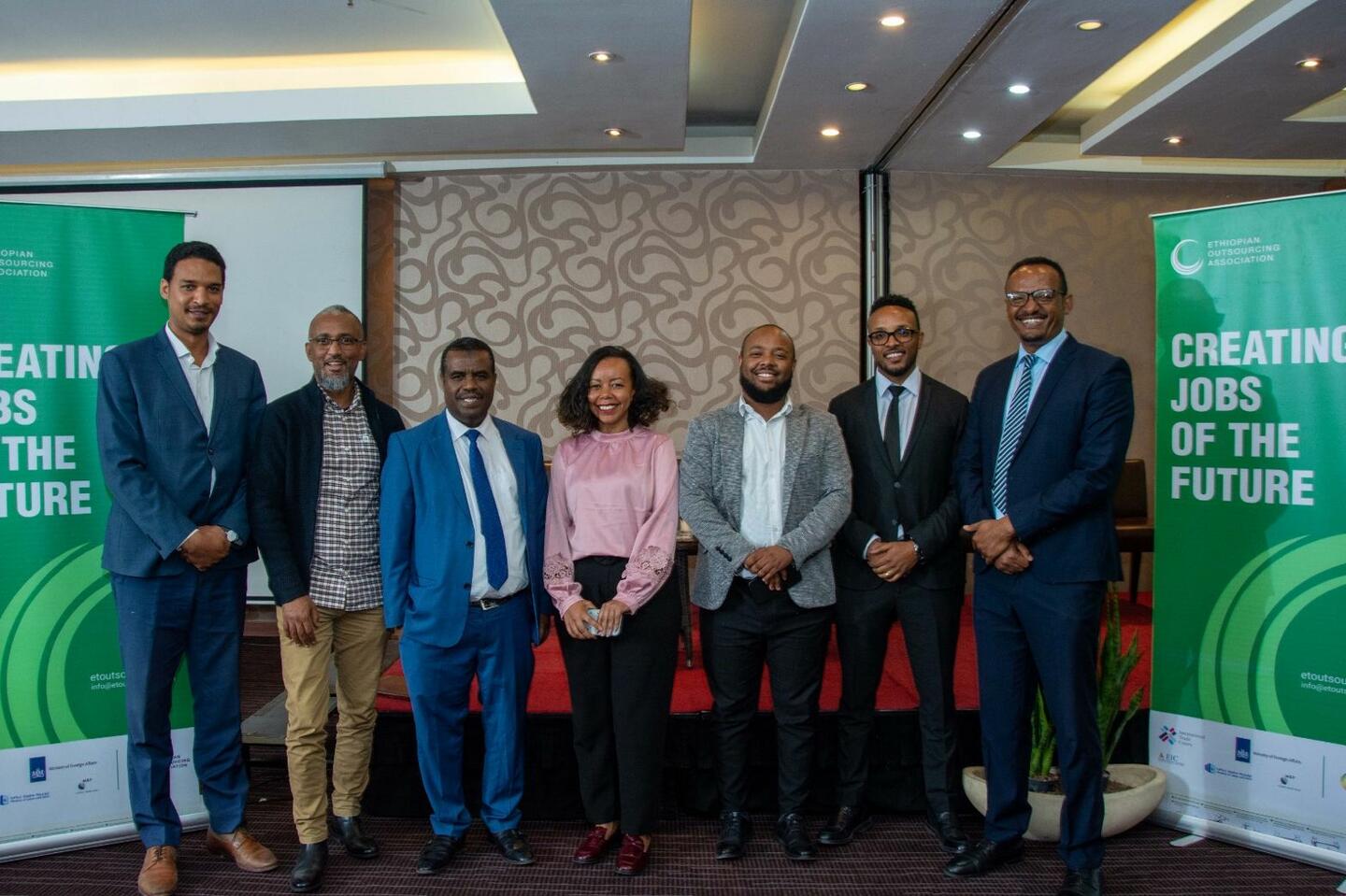
Growing the impact of tech hubs
The International Trade Centre (ITC), through the Netherlands Trust Fund V Ethiopia Tech project, supported the association’s creation by bringing an international expert to help design their strategy.
That’s part of the programme’s mission to work with digital businesses and business support organizations, including tech hubs, to increase their impact. For Ethiopia, harmonizing regulations and the tech ecosystem can help attract more business to a growing sector -- key points that emerged during the strategy sessions.
‘This was a three-day course that was very beneficial to us,’ Tefera said.
Their strategy boils down to two key planks.
Within Ethiopia, they want to create a conducive environment for outsourcing, by engaging with government to make sure they have the right policies for the industry.
The second part is marketing outside of Ethiopia to attract business to the country.
Outsourcing businesses here see a model in India, where tech companies turned the country into a back office for global businesses.
Zewdie sees outsourcing as a way to create jobs in his country, where 70 percent of the population are youth and eager for decent work.
‘The domino effect is quite big,’ he said. ‘The $4 billion that Ethiopia exports every year, that is an amount that we can generate in the coming years just in this industry.’
About the project
The Netherlands Trust Fund V (NTF) (July 2021 – June 2025) is based on a partnership between the Ministry of Foreign Affairs of The Netherlands and the International Trade Centre. The programme supports MSMEs in the digital technologies and agribusiness sectors. Its ambition is two-fold: to contribute to an inclusive and sustainable transformation of food systems, partially through digital solutions, and drive the internationalization of tech start-ups and export of IT&BPO companies in selected Sub-Saharan African countries, including Ethiopia.




